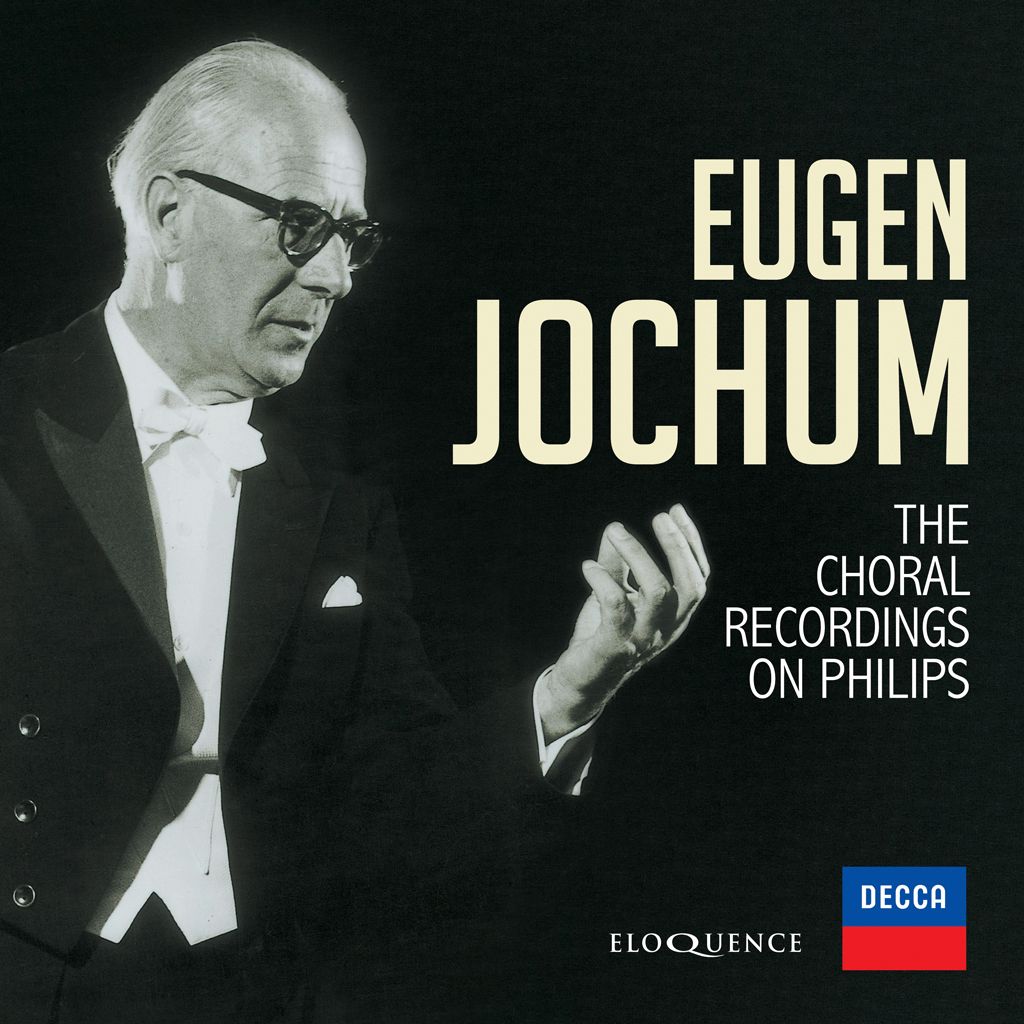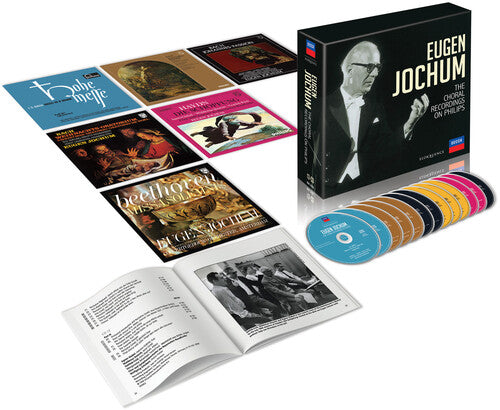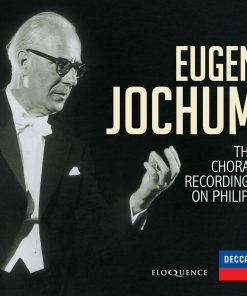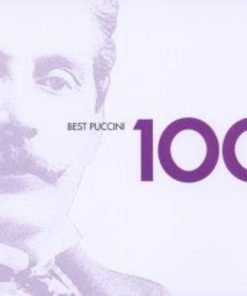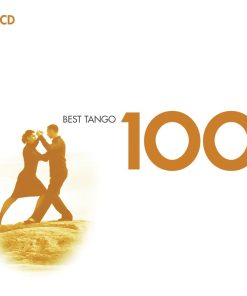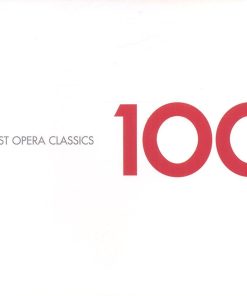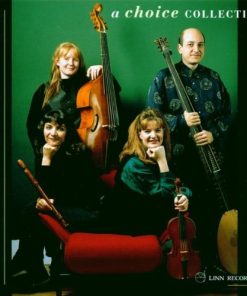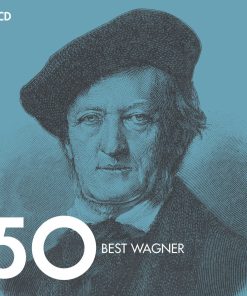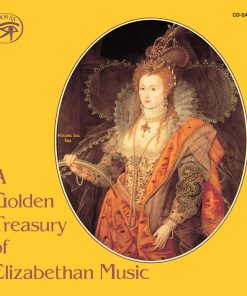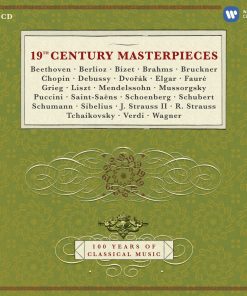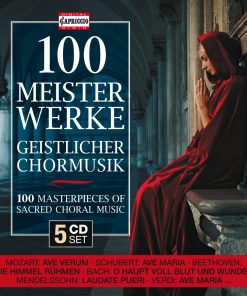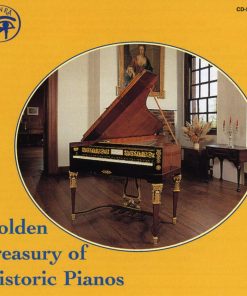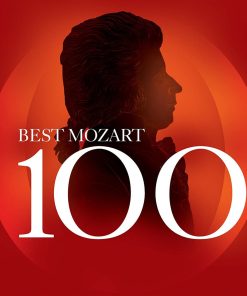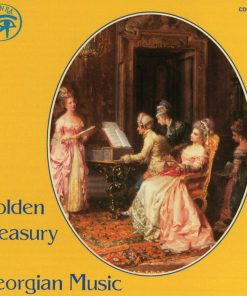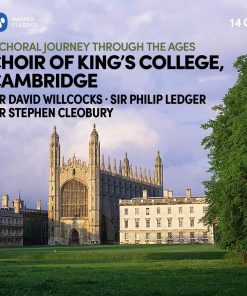Eugen Jochum: The Choral Recordings On Philips (13 CDs) DECCA
$ 89,99 $ 44,99

Eugen Jochum’s complete recordings of choral / sacred music for Philips collected together for the first time. Includes the rare Rudolf Mengelberg Magnificat.
Born into a Catholic family of Bavarian musicians, Eugen Jochum was playing the organ and conducting his father’s choir as a child. Late in life he became renowned as a Bruckner specialist, as he acknowledged, ‘but I began with the music of Bach, Mozart and Beethoven. And it is to their music that I still feel closest’.
Even as the period-instrument movement gathered momentum during the 1960s, Jochum refused to relinquish Bach to historical specialists. He wrote an extensive essay on the interpretation of Bach’s St. Matthew Passion in the 1960s. ‘Even nearer to my heart,’ he said, ‘is the B minor Mass, the most spiritual work in the repertory.’ For Philips he recorded the four great pillars of Bach’s sacred music between 1958 (B minor Mass) and 1973 (Christmas Oratorio). His interpretations tread a scrupulous, devotional middle way between stylistic traditions: ‘I don’t think it matters too much if you use a large or a small choir, old or new instruments; what they must be is lively and dramatic. Expression is the heart of the matter’.
The understanding of dance rhythm and momentum which distinguish Jochum’s Bruckner performances also inflect his Bach recordings, notably enhanced by his ability to get singers to engage with the meaning of the text. Jochum established his Wagnerian credentials early in his career with a superb Tannhäuser, and his passions extended far beyond music for the church and concert-hall. He had a huge musical personality, but what continues to impress across his discography is his ability to know when and how to apply the components of that personality to the repertoire at hand. This master of rubato could stick with a lively and steady tempo to great effect in the great choral fugues of Haydn’s Creation and Beethoven’s Missa solemnis, and this master of forward motion also knew when to stop and let the music breathe, in the Beethoven’s ‘Sanctus-Benedictus’ above all.
This Eloquence box is offered as a companion to Jochum’s complete orchestral recordings for Philips. It is enhanced by some of the finest Bach singers of their day – Ernst Haefliger, Walter Berry and Agnes Giebel notable among them – and the superb principals of the Concertgebouw such as Han de Vries (oboe), Hubert Barwahser (flute) and Anner Bijlsma (cello), all of whom went on to pursue careers as solo-musicians. The Christmas Oratorio and The Creation feature the Bavarian Radio Symphony Orchestra and local choirs, with whom Jochum had enjoyed a fruitful relationship since becoming their principal conductor in 1949.
Niek Nelissen provides the insightful notes, including fascinating observations surrounding the recording sessions, and the booklet is enhanced with several rare photographs.
“This performance is shaped by a first-class musician. The choral lines, as for example in the great fugue of the Kyrie, are moulded with loving care … The orchestra is unfailingly eloquent, and special praise is due to the various instrumental soloists.” High Fidelity, October 1958 (Bach: Mass in B minor)
“A soft gently and dignified approach to the score that stresses its contemplative aspects.” Choral Music on Record, 1991 (Bach: Mass in B minor)
“Jochum has apparently chosen the ‘big’ approach. And yet, despite the size of his performing bodies, he has avoided the pitfall of having them get lost in a mass of sound, by the expedient of keeping them moving.” Stereo Review, December 1958 (Bach: Mass in B minor)
“The best St. Matthew Passion I have ever heard! The best choro-orchestral album of 1967!” Cincinnati Enquirer (Bach: St. Matthew Passion)
“A performance of considerable mass and scope … Haefliger is a very good Evangelist, skilled and understanding. Berry is in excellent form, rich-voiced and steady; he introduces more colour into his role than other performers of the part on records, stressing the human side of Jesus … Very good sound throughout.” High Fidelity, January 1968 (Bach: St. Matthew Passion)
“The vocalists, it must be said, are among the best one could hear in any Bach Passion today; particularly admirable is Ernst Haefliger, who as the Evangelist provides drama, rhetoric, and sensitivity.” Stereo Review, March 1968 (Bach: St. Matthew Passion)
“A loving, supple, dramatic and colourful reading, with much ebb and flow.” Choral Music on Record, 1991 (Bach: St. Matthew Passion)
“A superbly convincing performance of the closing pages … Thrilling singing … A profound experience fully worthy of the music.” Gramophone, April 1968 (Bach: St. John Passion)
“Sincere and deeply felt … The soloists are an experienced set vocally and always good to hear.” Gramophone, April 1985 (Bach: St. John Passion)
“From nearly all standpoints an excellent performance … Rhythmically vital.” Stereo Review, January 1974 (Bach: Christmas Oratorio)
“The choral singing is simply splendid, as vivid in brilliant choruses, as warm in quietly sustained music … The sheer artistry of everyone concerned commends it most to me, plus its superlative recording.” Gramophone, September 1973 (Bach: Christmas Oratorio)
“Beautifully and incisively executed and well recorded.” High Fidelity, February 1974 (Bach: Christmas Oratorio)
“This splendid performance and recording gave me very great pleasure … Jochum gets very good and finely pointed playing.” Gramophone, March 1967 (Haydn)
“[Jochum’s] abundant vitality is at once apparent at the start of the Gloria … and his feeling for line and mood is equally apparent at the start of the Gratias.” Gramophone, October 1971 (Beethoven)
“Eugen Jochum has good soloists and a marvellous orchestra at his command, and he secures from them an eloquent and devotional performance.” Stereo Review, June 1973 (Beethoven)
“The heart of the matter … truth … spiritual intensity can hardly be demonstrated as matters of fact, though to my mind Jochum has them.” Choral Music on Record, 1991 (Beethoven)

CDs 1–2
JOHANN SEBASTIAN BACH (1685–1750)
Mass in B minor, BWV 232
Lois Marshall, soprano I
Hertha Töpper, soprano II
Peter Pears, tenor
Kim Borg, Hans Braun, bass
Chor und Symphonieorchester des Bayerischen Rundfunks
EUGEN JOCHUM
CDs 3–5
JOHANN SEBASTIAN BACH (1685–1750)
Matthäus-Passion, BWV 244 (St. Matthew Passion)
Ernst Haefliger, tenor (Evangelist)
Walter Berry, bass (Jesus)
Agnes Giebel, soprano
Marga Höffgen, alto
John van Kesteren, tenor (arias)
Franz Crass, Leo Ketelaars, bass (arias)
Netherlands Radio Chorus
Boys’ Chorus of St. Willibrord’s, Amsterdam
Concertgebouworkest
EUGEN JOCHUM
CDs 6–7
JOHANN SEBASTIAN BACH (1685–1750)
Johannes-Passion, BWV 245 (St. John Passion)
Ernst Haefliger, tenor (Evangelist)
Walter Berry, bass (Jesus)
Agnes Giebel, soprano (arias & Ancilla)
Marga Höffgen, alto (arias)
Alexander Young, tenor (arias & Servus)
Franz Crass, bass (arias & Petrus, Pilatus)
Netherlands Radio Chorus
Concertgebouworkest
EUGEN JOCHUM
CDs 8–10
JOHANN SEBASTIAN BACH (1685–1750)
Weihnachts-Oratorium, BWV 248 (Christmas Oratorio)
Elly Ameling, soprano (arias & Engel)
Brigitte Fassbaender, alto (arias)
Horst R. Laubenthal, tenor (arias & Evangelist)
Hermann Prey, bass (arias & Herodes)
Tölzer Knabenchor
Chor und Symphonieorchester des Bayerischen Rundfunks
EUGEN JOCHUM
CDs 11–12
JOSEPH HAYDN (1732–1809)
Die Schöpfung, Hob. XXI:2 (The Creation)
Agnes Giebel, soprano (Gabriel, Eva)
Waldemar Kmentt, tenor (Uriel)
Gottlob Frick, bass (Raphael, Adam)
Chor und Symphonieorchester des Bayerischen Rundfunks
EUGEN JOCHUM
RUDOLF MENGELBERG (1892–1959)
Magnificat
Annie Woud, alto
Concertgebouworkest
EUGEN JOCHUM
CD 13
LUDWIG VAN BEETHOVEN (1770–1827)
Missa solemnis, Op. 123
Agnes Giebel, soprano
Marga Höffgen, alto
Ernst Haefliger, tenor
Karl Ridderbusch, bass
Netherlands Radio Chorus
Concertgebouworkest
EUGEN JOCHUM
Fast Shipping and Professional Packing
Due to our longstanding partnership with UPS FedEx DHL and other leading international carriers, we are able to provide a range of shipping options. Our warehouse staff are highly trained to pack your goods exactly according to the specifications that we supply. Your goods will undergo a thorough examination and will be safely packaged prior to being sent out. Everyday we deliver hundreds of packages to our customers from all over the world. This is an indication of our dedication to being the largest online retailer worldwide. Warehouses and distribution centers can be located in Europe as well as the USA.
Orders with more than 1 item are assigned processing periods for each item.
Before shipment, all ordered products will be thoroughly inspected. Today, most orders will be shipped within 48 hours. The estimated delivery time is between 3-7 days.
Returns
The stock is constantly changing. It's not entirely managed by us since we are involved with multiple parties such as the factory and our storage. The actual stock can fluctuate at any time. Please understand it may happen that your order will be out of stock when the order is placed.
Our policy is valid for 30 days. If you haven't received your product within 30 days, we're not able to issue either a return or exchange.
You are able to return a product if it is unused and in the same condition when you received it. It must also still remain in the original packaging.
Related products
MUSIC CDS
MUSIC CDS
MUSIC CDS
MUSIC CDS
MUSIC CDS
MUSIC CDS
MUSIC CDS
MUSIC CDS
